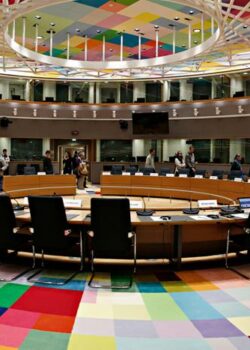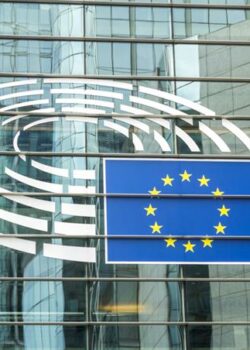There has been much discussion and formulation of laws compelling companies to undertake human rights due diligence. And, until now, it was unclear whether such laws had bite. A group of three NGOs are now attempting to prove that they do.
Friends of the Earth France (known as Les Amis de la Terre), Notre Affaire à Tous and Oxfam France have come together to launch a lawsuit against BNP Paribas over what a statement describes as “massive support for fossil fuels” and for a “substantial contribution to climate change”.
In the process, the NGOs claim, BNP has neglected its obligations against the “loi de vigilance”, French national law requiring companies to undertake human rights and sustainability due diligence.
The NGOs claims this will be the first lawsuit brought using the law and could potentially be a landmark case.
According to Lorette Philippot, a campaigns leader with Friends of the Earth, repeated messaging, in particular from the United Nations, insists a bank cannot be working towards net-zero carbon emissions and funding new fossil fuel projects at the same time. “But BNP Paribas, Europe’s largest funder of fossil fuel expansion is ignoring scientific truths and is reluctant to address this glaring issue.”
Exit this way
The lawsuit comes just a month after BNP Paribas said the bank was on an “exit path” from oil, had stopped all project financing from 2016, and would cut “outstanding financing for oil extraction and production” by 25% by 2025. It said an exit from coal would be complete by 2030.
At the time, Jean-Laurent Bonnafé, Paribas’s CEO, said: “In 2015, when the Paris Agreement was signed, financing for the production of low-carbon energy only accounted for a limited part of the BNP Paribas loan portfolio dedicated to energy production. By 2030 it will represent nearly four-fifths of this loan portfolio.
“The group will have achieved 80% of its transition in less than 15 years, confirming its position as the leader among internal financial actors.”
Yet the NGOs remains unimpressed. They are keen to flag that this is the first action of its kind against a business sector with enormous influence over carbon reduction.
According to Justine Ripoll, campaign leader at Notre Affaire à Tous: “The financial sector has a huge responsibility in our collective ability to comply with the Paris Agreement. The first climate litigation against a commercial bank is undoubtedly the first of many around the world.”
This latest lawsuit follows predictions that more companies would face more legal action. Though the three NGOs have based their claim on French law, some legal experts predict the EU Corporate Sustainability Due Diligence Directive, and the Corporate Sustainability Reporting Directive, when fully enacted, could both trigger a wave of courtroom claims against boards and their companies.
Earlier this month, ClientEarth, another climate NGO, launched legal action against Shell directors, the first of its kind too, claiming they failed to fulfil their fiduciary duties because the company’s transition falls short of meeting the needs of the Paris Agreement.
As reporting requirements mount, and the urgency for action over carbon emissions intensifies, the court could become very busy indeed.





